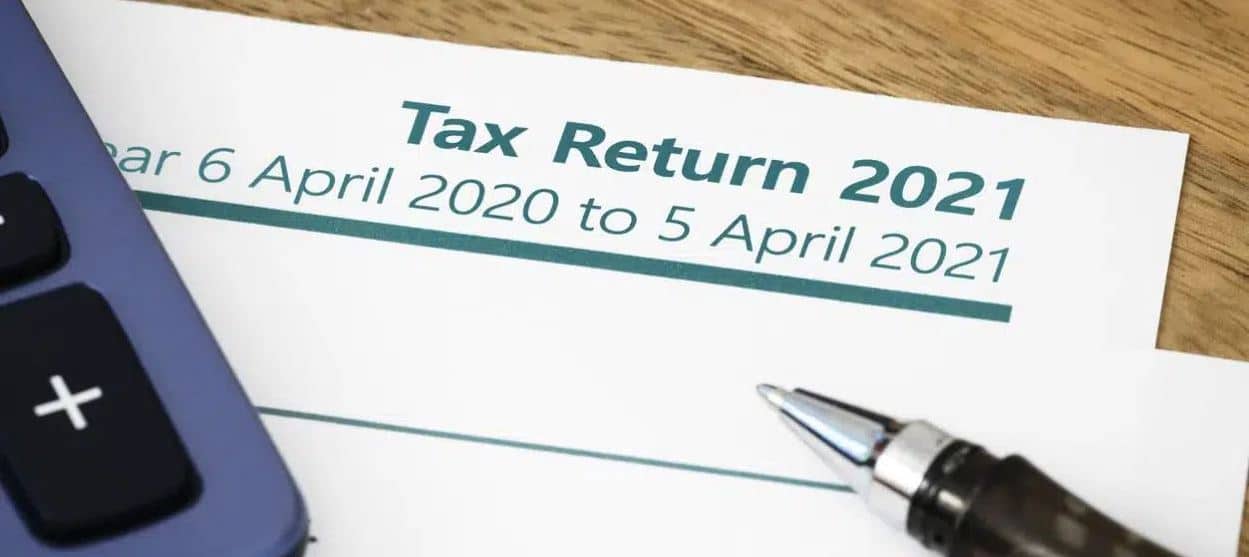What is a tax return?
Updated 19th August 2022 | 5 min read Published 18th October 2021

It can be easy to become confused by all the jargon associated with tax returns, whether it’s trying to understand if a tax return is required, to deciphering when a tax return needs to be filed and any associated tax paid.
This article offers a comprehensive look at tax returns for individuals and companies, answering key questions such as what is a tax return, when returns should be submitted to HMRC, and what changes to tax returns are on the horizon.
Tax returns explained
In essence, a tax return is a form that tells HMRC how much income on which a taxpayer is to be assessed in a tax year. A return also allows a taxpayer to include any qualifying deductible expenses and make any relevant claims that may reduce their overall tax liability.
For income tax purposes, a tax year runs from 6 April to the following 5 April. For corporation tax purposes, a financial year runs from 1 April to the following 31 March.
What is a business tax return?
The answer depends on the type of business that you run.
Commonly, an individual may operate their business as a sole trader, through a company, or as a partner in a partnership.
Each of these types of entities report their results for a tax year using different tax returns. Individuals report their income via self-assessment whereas companies prepare corporation tax returns. The process for individuals and companies is outlined below.
Self-Assessment Tax Returns
Individuals file a “self-assessment tax return”. Form SA100 is the main part of the tax return, but other pages may be required depending on the taxpayer’s circumstances.
Examples of supplementary pages include those for employees or company directors (SA102), self-employment (SA103S or SA103F), UK property income (SA105), and capital gains (SA108).
A full list of supplementary pages can be found here.

Corporation Tax Returns
A company prepares a corporation tax return, known as a CT600. In addition to the CT600, there are supplementary pages to report additional items, from close company loans (CT600A) to group relief (CT600C).
A corporation tax return is typically accompanied by a corporation tax computation as well as a copy of the company’s accounts for that period.
Does everyone need to file a return?
In short, no. Not everyone has to file a return for income tax.
Many individuals, for example, only earn employment income. As tax from a person’s wages is collected through Pay As You Earn (commonly abbreviated to PAYE), typically such individuals do not need to file a tax return (unless they earn over £100,000 per year).
However, some individuals have income sources outside of their employment. This might be from an investment property, self-employment income, or income from dividends or interest. Such individuals may have to file a self-assessment return.
If you do need to file a return you might feel comfortable doing it yourself, but an accountant can also do it for you. Take a look at our recent blog where we discuss when it is worth getting an accountant to do your tax.
How do I know if I should file?
Those already in self-assessment receive a “Notice to File” from HMRC each tax year.
Those who are not sure whether they should lodge a tax return can use HMRC’s tool “check if you need to send a Self Assessment tax return”, which can let you know if you should be filing tax returns.
If you are new to self-assessment, you can register with HMRC here.
When it comes to companies, a trading company should still file a corporation tax return, even if it is loss-making during a period and/or has no corporation tax to pay.
When are tax returns due for business?
The filing deadline for a tax return differs based on the type of tax return.
For an individual filing a self-assessment tax return, the filing deadline is typically either:
• 31 October following the tax year end (if filing a paper return), or
• 31 January following the tax year end (if filing a return online).
An individual filing their 2020-21 tax return would need to lodge with HMRC either by 31 October 2021 (if delivering a paper return) or by 31 January 2022 (if delivering an electronic return).
The filing deadline for a company is different. A corporation tax return should generally be filed with HMRC within 12 months following the end of the relevant accounting period.
A company prepares its accounts to 31 December. It should submit its corporation tax return for the year to 31 December 2020 to HMRC by 31 December 2021.
A quick note on payment deadlines
Don’t fall into the trap of thinking that income and corporation tax payment deadlines mirror the filing deadlines for returns. Find out more about paying income tax and corporation tax.
Changes to tax returns are on the horizon
Finally, when it comes to income tax, it’s worth keeping in mind that some significant changes are on the horizon. Two significant changes include Making Tax Digital for Income Tax (MTD) and basis period changes.

Making Tax Digital for Income Tax
MTD for Income Tax is set to be introduced from 6 April 2024.
In brief, the MTD for Income Tax regime applies to those registered for income tax self-assessment with qualifying income (i.e. income from self-employment and/or property) of more than £10,000.
Those within the regime will need to use MTD-compatible software to keep digital records, send quarterly updates of business income and expenses, and submit a final declaration to HMRC.
MTD for Income Tax is designed to replace the traditional self-assessment tax return. While its mandation is still a few years off, it’s worth familiarising yourself with the regime (and maybe even join the pilot scheme), to allow plenty of time for the transition.
Basis period changes
In addition, HMRC has recently consulted on changing the way that trading income is allocated to tax years by moving to a tax year basis. This change will mainly affect businesses who do not draw up annual accounts to 31 March or 5 April, as well as businesses in their early years of trade.
While this change is not expected to come into effect before April 2024 (and with a transition year not coming into effect earlier than 2023), understanding these changes is essential if your business will be impacted.
Now we've answered the question 'what is a tax return' - you may want to know how you can easily file returns for your business. We advise you look around for the best software for you. Whilst you're here why not start by taking a look at our tax return software which helps individuals and accountancy firms alike. Prepare tax returns for all business types and sizes, from sole traders to partnerships, corporates, and trusts and estates.





